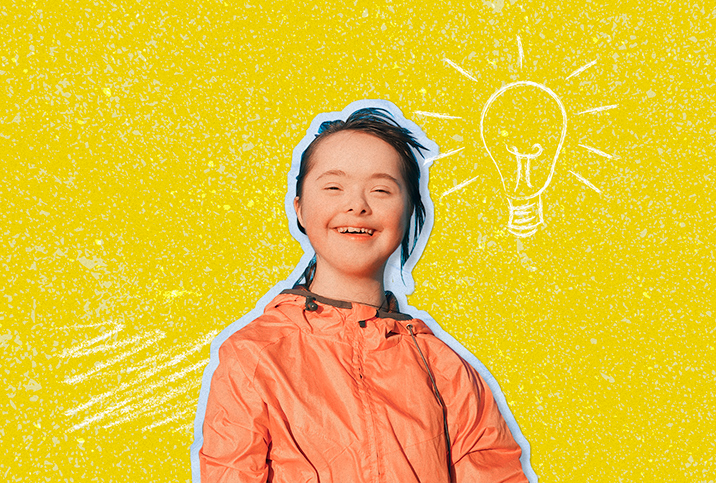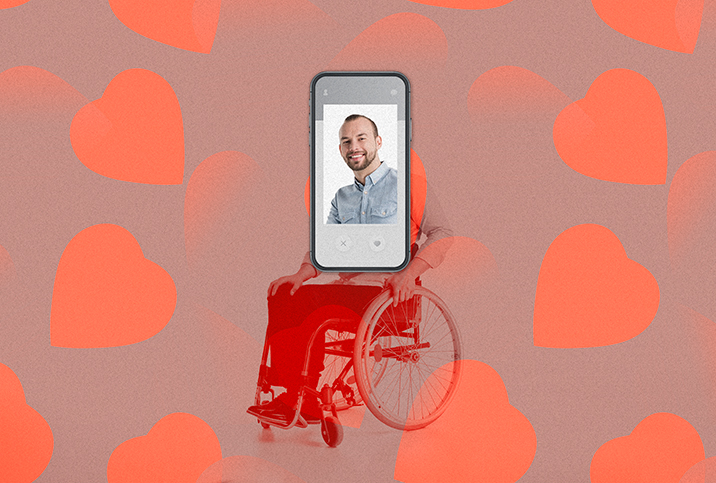A Guide for Parents on Discussing Sex Education With Disabled Children

As a result of either poorly adapted education or ill-informed parents and teachers, disabled people are often sidelined or excluded entirely when it comes to sex education.
Perhaps assumed to be nonexistent, the community's sexuality is taboo, and representation is typically limited to appearing in pornography as an objectifying fetish. A lack of inclusive sex education leaves disabled people vulnerable to exploitation as they grow into adults without information on sexual health, consent and pleasure.
"Like other demographics, a lack of sex education means individuals cannot make informed decisions about sex or their sexual health, and not talking about topics around sexuality can create or perpetuate the shame a lot of people feel around these subjects," said Rachael Rose, a Philadelphia-based sex and relationship coach and educator. "In addition, disabled people are often desexualized, and excluding disabled folks from sex education is one of the ways this happens."
While sex education standards fluctuate globally and impact everyone, the effects on disabled people have gone unaddressed for too long. Disabled people deserve comprehensive education that empowers them, just like everyone else.
The current state of sex education
In the United States, there are no clear, unified sex education guidelines from state to state, and some states mandate abstinence-only curricula, leaving countless people without appropriate knowledge.
Amid a sea of inadequate sex education, disabled people are being left even further behind. Research indicates disabled people, particularly folks with intellectual disabilities, are living with significant gaps in education. One 2016 study revealed that while many intellectually disabled people demonstrate an interest in sex and romance, they are not equipped with the appropriate education to support this desire.
"Parents and teachers will assume we aren't capable of handling the information, meaning they've assumed a lot about us without involving us in that conversation," explained Damian Weatherald, a sex educator living in the United Kingdom. "Many of these same guardians and guardian-like adults also refuse to accept that we are autonomous beings. We see many parents who refuse to allow us to participate in sex education and also refuse to allow us to date at the same time as our peers; not only does that cause further ostracization but it limits and can destroy our social lives."
Without inclusive education, disabled people are growing up particularly vulnerable to sexual abuse and domestic violence, with disabled people in the U.S. being more likely to experience sexual or domestic violence. In the U.K., disabled people experience sexual assault at almost twice the rate of nondisabled people, and disabled women are more than twice as likely to be a victim of domestic abuse.
"It gives us the message that sexuality and sexual pleasure is not for us," said Sophia Graham, the founder of Love Uncommon, a provider of support and education. "This reinforces rape culture and makes us more vulnerable to abuse. When we aren't given information about healthy sexuality, we sometimes don't notice the warning signs of abuse. I think, like so many other forms of exclusion, it is a form of violence that has so much potential to lead disabled and neurodiverse people into a cycle of abuse."
Measuring the individual impact
"I remember we were all given the laminated pictures of STIs, and the shaming aspect of sex is really harmful, especially if you have a condition like autism, ADHD, obsessive-compulsive disorder," said Charlotte Colombo, a freelance journalist from the U.K. "If you have that neurodiverse, obsessive brain pattern, you internalize this kind of shame and it does impact you growing up."
Incomplete sex education also makes it harder for disabled people to identify their own sexual orientation or preferences, delaying self-discovery until they are able to learn independently as adults.
The approach
To deliver sex education, parents first must get over the awkwardness about sex. Protecting children from abuse and ensuring they grow into well-rounded adults requires prioritizing their need for information over your discomfort.
"If you don't give your children effective sex education, you are increasing their risk of abuse," said Graham, who's based in Boston. "You are also increasing their risk of experiencing sexual dysfunction and understanding sex as shameful or taboo and not for them. Ask yourself the question: Is there anything else I'd be unwilling to do if it would reduce my child's risk of abuse?"
Dropping a child off at school and expecting the curriculum to provide all the necessary information is not enough anymore. Even in countries like England that have mandated sex education, there are significant gaps, such as not including pleasure or specific adaptations for disabled students.
Identify the gaps by researching what is mandated, asking your child whether this has been delivered, holding your child's school accountable and then closing the holes with your own research.
What to include?
Formulating a comprehensive sex education for every type of parent and every type of disability is, unfortunately, a complex and time-consuming task. However, the basic principles are: protection, consent, awareness of the reproductive process, and an introduction to pleasure, including masturbation and shared pleasure.
"Inclusive sex education needs to be focused on pleasure as well as agency and consent," Weatherald said. "Whenever I'm teaching teenagers or young adults, we talk a lot about boundaries, both in the sense of who we allow access to our emotional intimacy and who is able to access our bodies, in what ways, at what times."
Although it's the subject of an ongoing and controversial debate, sex education must begin as soon as possible. Children are in need of consent education as much as adults, and introducing comprehensive sex education while young means there is plenty of time to fill in any gaps as your child enters their teenage years.
Shatter the stigma
The most important role a parent can play in discussing sex education with their disabled child is championing the right of their child to engage in romance and sex. Disabled people are still fighting for opportunities and progress, but nondisabled parents have the privilege to shatter the stigmas affecting your child. Use your voice and be an ally.
"Openness is the way we learn. If you hide things in a drawer, they don't go away, so you need to be open and upfront about it," Weatherald said. "Don't shy away from those conversations, because they need to happen. If things don't change, it's just going to keep going on from generation to generation."


















